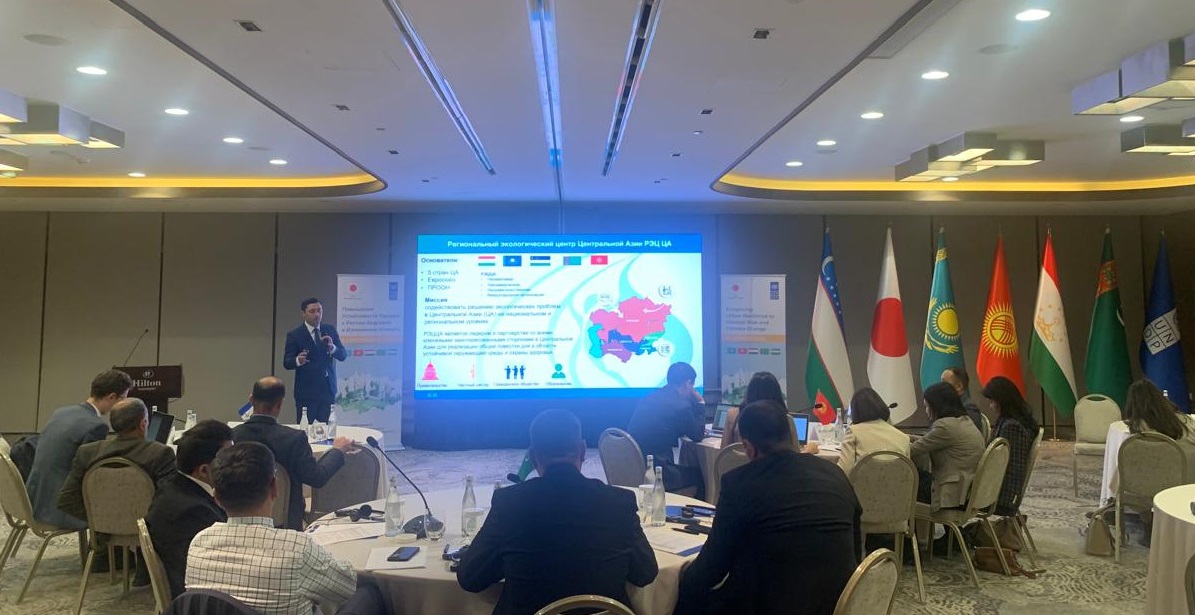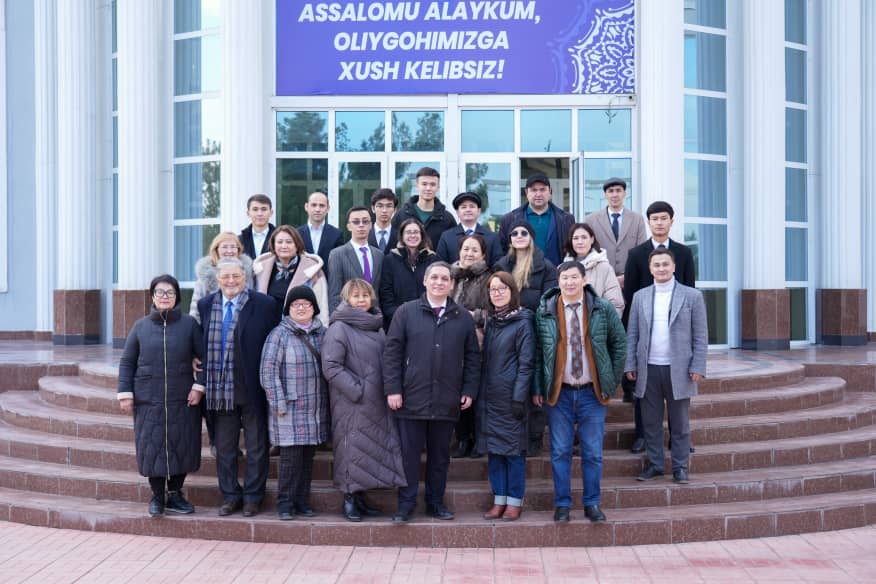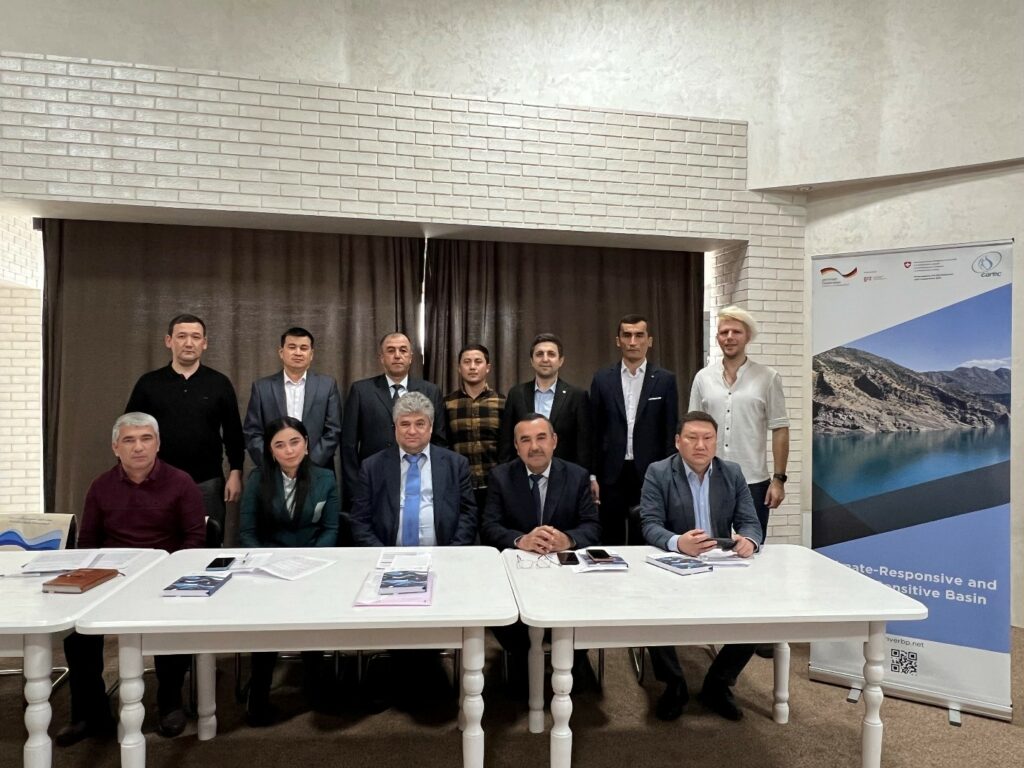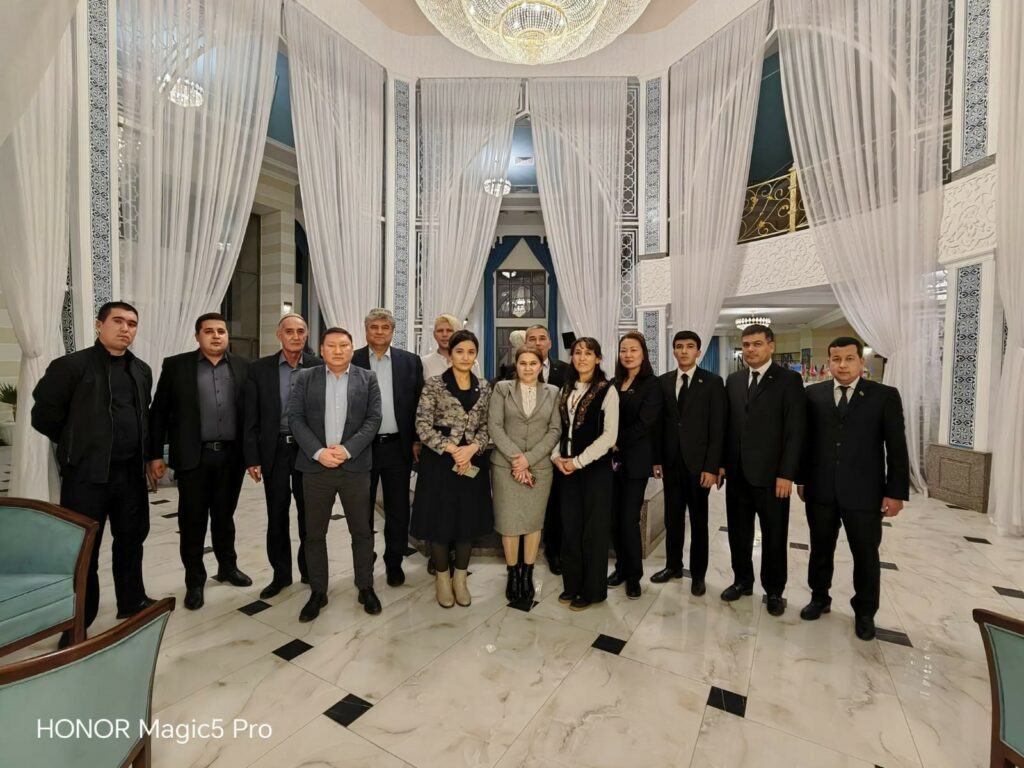Central Asian cities face exceptional challenges due to rapid climate change and swift urbanization.
Floods, droughts, and other natural disasters require new technical solutions, such as sustainable infrastructure projects and water management systems, to adapt Central Asian cities to the effects of climate change.
Cooperation between government agencies and private and non-governmental organizations and climate risk integration into urban planning is important to tackle these challenges.
The introductory workshop of the project “Strengthening Urban Resilience to Disaster Risk and Climate Change in Central Asia” on December 12, 2024, provided a platform to discuss successful practices and innovative technologies aimed at minimizing the negative impacts of climate risks.
The event presented good experience in adapting urban infrastructure, including the design of sustainable water supply systems, green spaces, and energy-efficient development.
The exchange of knowledge and innovative approaches between cities of different countries will help accelerate the adaptation process and increase the overall resilience of the Central Asian region to climate change and natural disasters.
“Supporting local governments and risk management professionals through online courses and webinars is building a new generation of experts capable of adequately responding to climate change. Regular updating of the knowledge base with examples of successful practices provides time-tested recommendations, which increases the level of responsibility and awareness on the ground,” said Zafar Makhmudov, Executive Director of the Regional Environmental Centre for Central Asia (CAREC), presenting the Central Asian Climate Information Platform (CACIP) to the workshop participants.

He emphasized that an important aspect of CACIP’s work is facilitating the regional exchange of data and experience between countries, which contributes to the development of joint strategies to overcome climate challenges. The platform provides an opportunity not only to share information but also to integrate local knowledge into global contexts, making collaboration more effective.
“Creating an interface for citizens is a significant step towards involving the population in the issues of their safety and sustainability. Threat notifications and access to up-to-date information will enable people to quickly respond to changing conditions, minimizing risks and, as a result, contributing to the preservation of life and health,” said Zafar Makhmudov.
He stressed that CAREC will continue to actively develop initiatives for creating a sustainable ecosystem and protecting public health in Central Asia.
The workshop was organized jointly by the UNDP and the government of the Republic of Uzbekistan.
Reference:
UNDP, with the support of the Government of Japan, has launched a regional project, “Strengthening Urban Resilience to Disaster Risk and Climate Change in Central Asia”, which will be implemented in Kazakhstan, Kyrgyzstan, Tajikistan, Turkmenistan, and Uzbekistan. This project aims to support all five Central Asian countries in building resilience to climate change, especially in cities, through enhanced regional cooperation.



